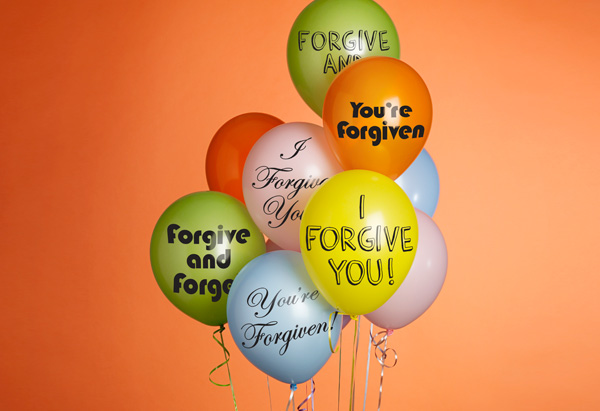
How to Forgive Anyone—and Why Your Health Depends on It
After studying forgiveness for close to 20 years, he should know. A lean wolfhound of a man with a mop of bushy hair parted down the middle, Luskin holds a PhD in counseling and health psychology from Stanford University, where he is the cofounder and director of the Stanford Forgiveness Project. He's a pioneer in the burgeoning forgiveness field, and it appears he's onto something. Study after study has found that forgiving is good for the body as well as the soul. It can lower blood pressure and heart rate and reduce levels of depression, anxiety, and anger. People who forgive generally have more and better relationships with others, feel happier and more hopeful, and score higher on just about every measure of psychological well-being.
The trouble is, most of us don't know how to do it. There's no playbook for forgiveness, no manual for getting past betrayals, disappointments, and hurts. This is where Luskin comes in. He's the master of forgiveness how-to. He believes forgiveness is a trainable skill that everyone can—and should—learn.
And this is why, on a sunny Friday morning, I'm seated at a conference room table at the Ackerman Institute for the Family, a therapy-training facility on Manhattan's Upper East Side. A dozen other women are with me, mostly therapists looking to broaden their skills, though a few of us have come for personal reasons. My main motivation is a painful relationship with my mother, who has a history of erratic behavior and lashing out at me (and others). Despite my many efforts at reconciliation, we've been estranged for most of my adult life. I'm here to find out if forgiveness could change our dynamic.
Luskin, dressed in khakis and docksiders, looks like he's ready to sail down the Hudson, not lead a workshop. He has no laptop, no briefcase, no handouts or notes, not even a copy of his book, Forgive for Good. He slouches at the head of the table and talks in a low, patient voice, his hands occasionally smoothing his hair. He tells us that despite what we may have heard about forgiveness "journeys," there are really only two steps in the process: grieving and letting go. Grieving, after you have been wronged, means letting yourself feel the anger, hurt, and trauma in all its original pain—but not indefinitely. "After about two years, most people have had plenty of time to process," Luskin explains. "Then they're ready to move on."
Not moving on—hanging on to resentment and rage—is tantamount to having an existential tantrum, according to Luskin. "We think the world owes us," he says. "But it doesn't. Babies die when they're born. Women are raped. Whole ethnic groups are wiped out. There's no such thing as fair. The guy who loses a parking space to a more aggressive driver thinks, "I want that parking space." A mother whose child has been murdered thinks, "I want my child to be alive." Either way, that's sometimes just not how it works."
A ripple of shock runs through the room. How can anyone compare losing a parking space to losing a child? "It's better not to get caught up in content," Luskin says. By content he means each person's individual story, the source of her anger or hurt.
No matter what the offense, he continues, the process of forgiveness is the same: You let go of anger and hurt by being mindful and focusing on gratitude and kindness. Again, the ripple runs around the table. That's it? A little mindful meditation and all is forgiven? Luskin smiles wryly. "Forgiveness concepts are simple," he says. "It's the execution that's hard."













